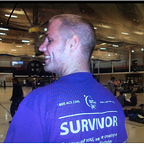What Failing Really Means
A friend and early co-founder recently asked me this question:
What does it really mean when you fail?
Kevin Rose wrote an inspiring piece last week encouraging others to stop Hiding Failure. In his article, he shared about the eventual decline of Digg and the “acquisition” of Dave Morin’s Path. Before reading more of the below, I highly recommend you read the above post because it artfully conveys how even the Bay Area’s best constantly fail.
If you haven’t yet read the full article, Kevin shares how failure comes in different shapes and sizes. His point is that it is really up to the individual to embrace these challenges, talk about them, and most importantly, to respond to them in constructive ways.
To best answer my friend’s original question and pay homage to Kevin’s advice, below is a message I sent to a friend who is a VC in Boulder. I sent this a few years ago when I was part of a failing company, GlobalMojo. Rather than give the cliche response that failure will make you a better and stronger person, here are my unfiltered thoughts:
7/24/2012- “I don’t think I realized how hard it would really be to honestly accept failure. I found myself telling others during interviews that failure was a great thing for me and that I was glad to move on. In reality, failure initially beat the shit out of me. I found myself upset about what had happened, consistently worried about my financial situation since I love living in SF but my bank account was dwindling. It was hard to move on since the company still existed and I was no longer a part of something that I had put so much into. Then just to put the icing on the cake, it seemed that every other company that I had talked with when I moved out here last August seemed to be killing it. I actually stopped reading TechCrunch because I didn’t feel like throwing up my breakfast each morning.”
Looking back on this email three years later, a few takeaways resonate with me, and I hope they will help you if you are currently struggling:
- People who are part of failed startups are usually way too hard on themselves. Startups are really hard to build, grow, and scale. Many say failing is a good thing. I agree that it is, but you have to be honest with yourself because you will be the one riding the emotional rollercoaster of embarrassment, depression, anger, and not to mention, the fear of your next move. Failing can become mentally and financially taxing; don’t be afraid to ask for help since failure can be a very dark and isolating place.
- Making the same mistake twice is fine, but don’t make it a trend. Mistakes aren’t quite failures, so try to improve each new place you land. A job is probably never going to be perfect, so focus on prioritizing and improving the elements that mean the most to you, both in the short and long-term.
- You will get through it. Don’t settle. Never give up. Find someone that will value what you have done and will give you an opportunity to prove yourself. (Even if you have to ask your Dad for last second cash, just like Andy Sparks of Mattermark explained here in Failure, Depression, and Yoda.)
- Help others as much as possible, good things will happen. Here is the rest and most important part of my email from 2012:
“I can now honestly say that I am thankful for what happened with GlobalMojo. When times are bad, you really see who in your network is there for you, and I appreciate everything you and every other friend in the startup ecosystem has done for me in the last few months. I learned that relationships are the most important part of this whole thing.”
To fairly answer my friend’s original questions, I responded in the most genuine way I could, “failing means that it is going to be really a fucking hard stretch, but you will make it through it, don’t give up, and there is an army of us that are willing to help however we can.”
My advice is to let neither failure nor success define who you are as a person and how you should treat others. People and relationships are the only things that truly matter. If you can understand this and work through the harder aspects of actually failing, you will be just fine.
Disclaimer: I failed again even after 2012 and will share more in future posts. Even with challenges, I’m very thankful for the people I’ve met along the way. Please let me know if I can help you in any way!
